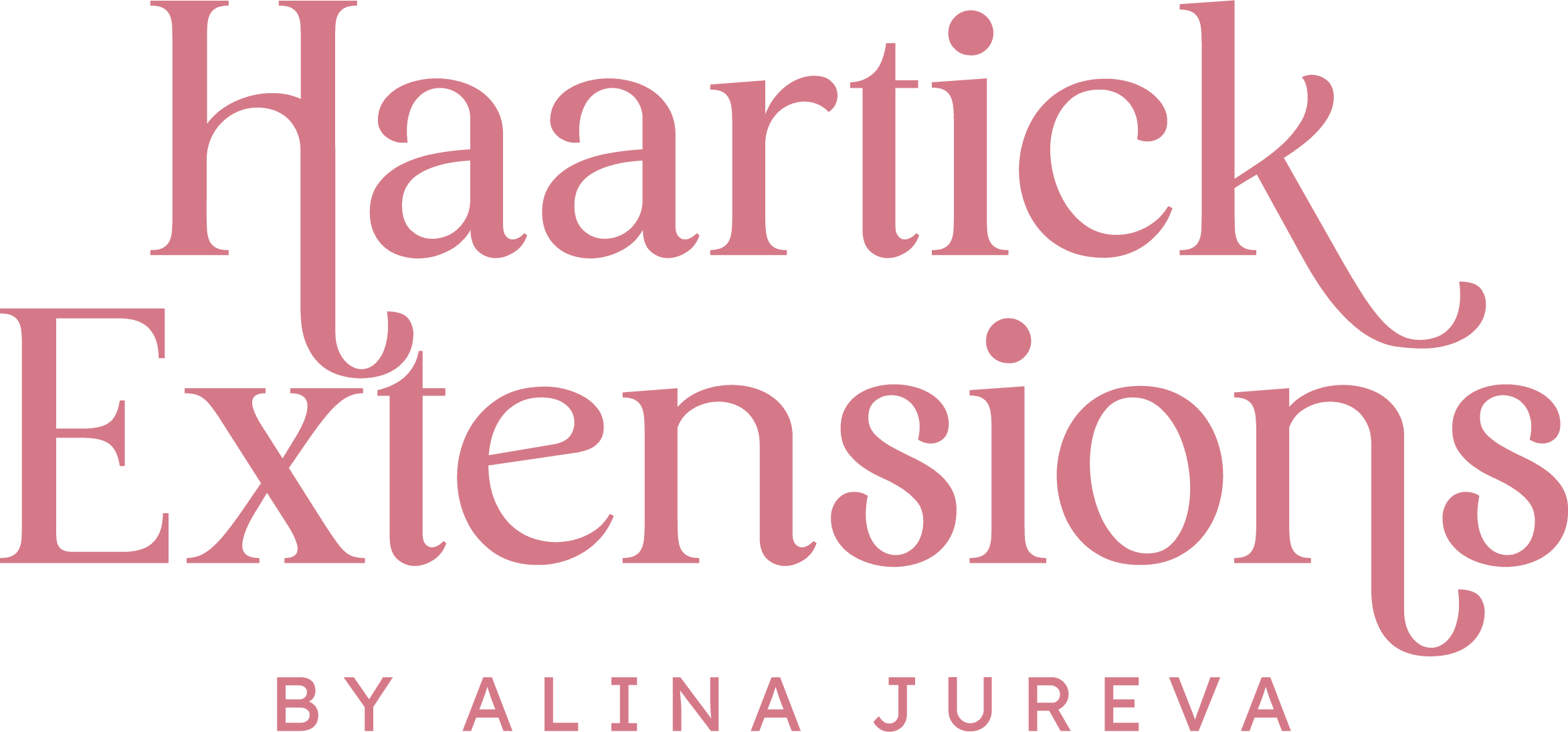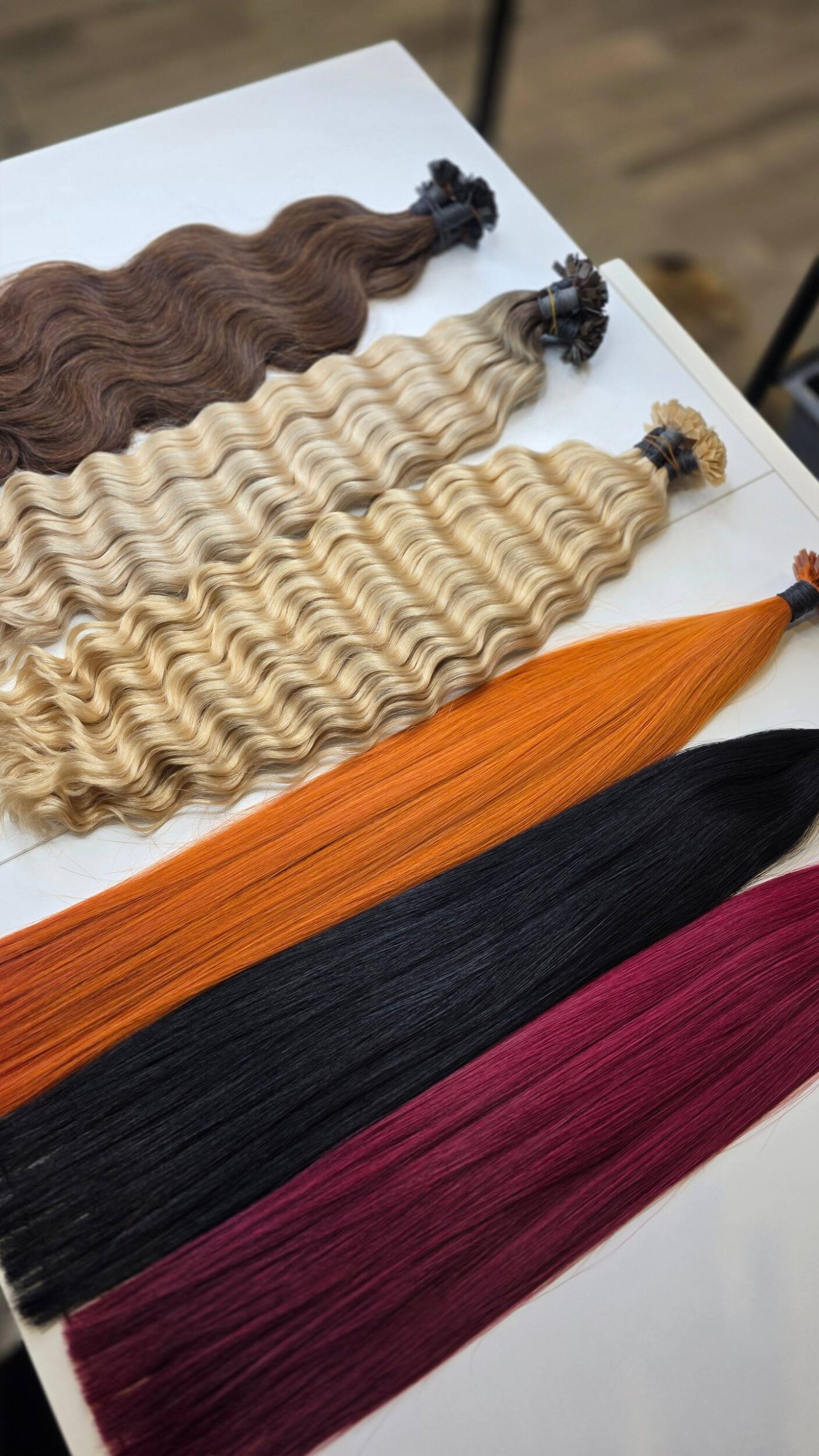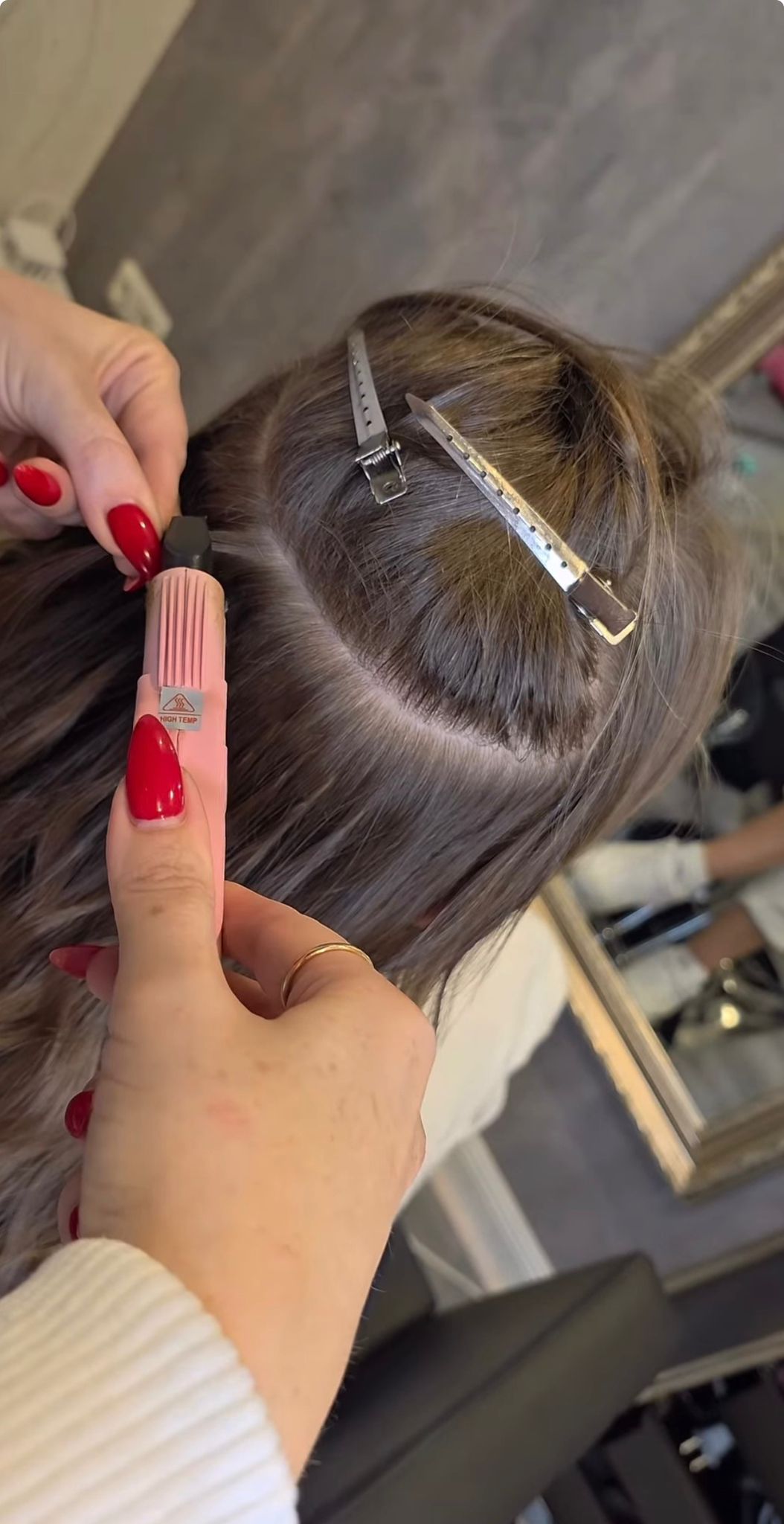Blog
Extensions during pregnancy: what expectant mothers should know
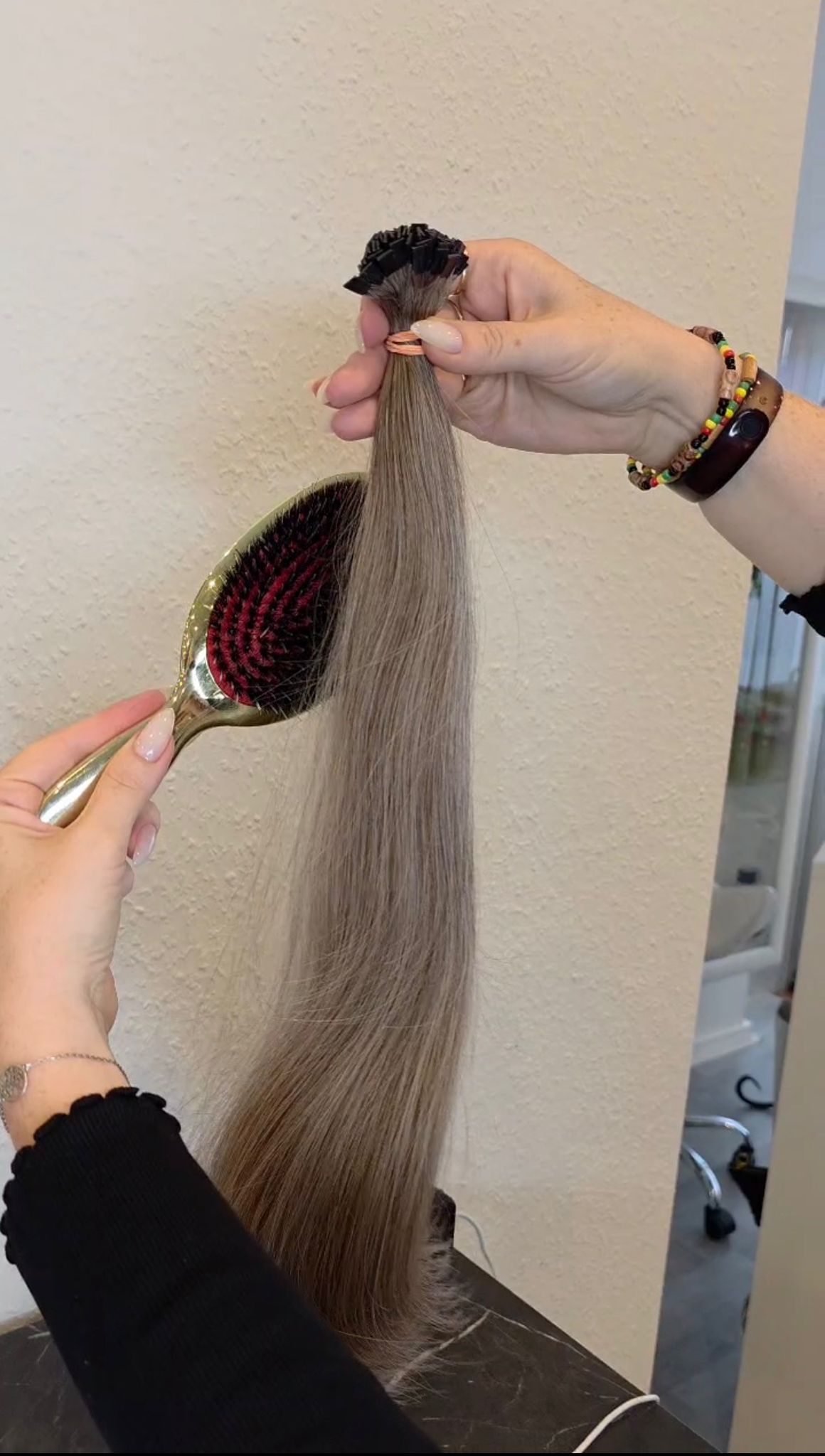
Pregnancy is an exciting time full of changes. The body does extraordinary things, and this is also reflected in the skin, nails and especially the hair. During this special phase of life, many women ask themselves whether extensions during pregnancy are a good idea, what they should look out for and how the hormonal changes can affect their hair extensions.
How hair changes during pregnancy
Pregnancy brings with it a veritable cocktail of hormones. Oestrogen levels in particular increase significantly, which often has a positive effect on the hair. Many expectant mothers report a real dream mane: the hair looks thicker, shinier and healthier than ever before.
The reason for this is simple: Normally, each individual hair goes through a natural cycle of growth, resting phase and loss. During pregnancy, the growth phase is considerably longer. Hair that would normally fall out stays on the head for longer. The result is visibly more volume and fullness.
However, some women also notice the opposite. Some women's hair becomes thinner, greasier or drier during pregnancy. Every body reacts differently to hormonal changes. The hair structure itself can also change: Straight hair suddenly becomes wavy or, conversely, curls lose their bounce.
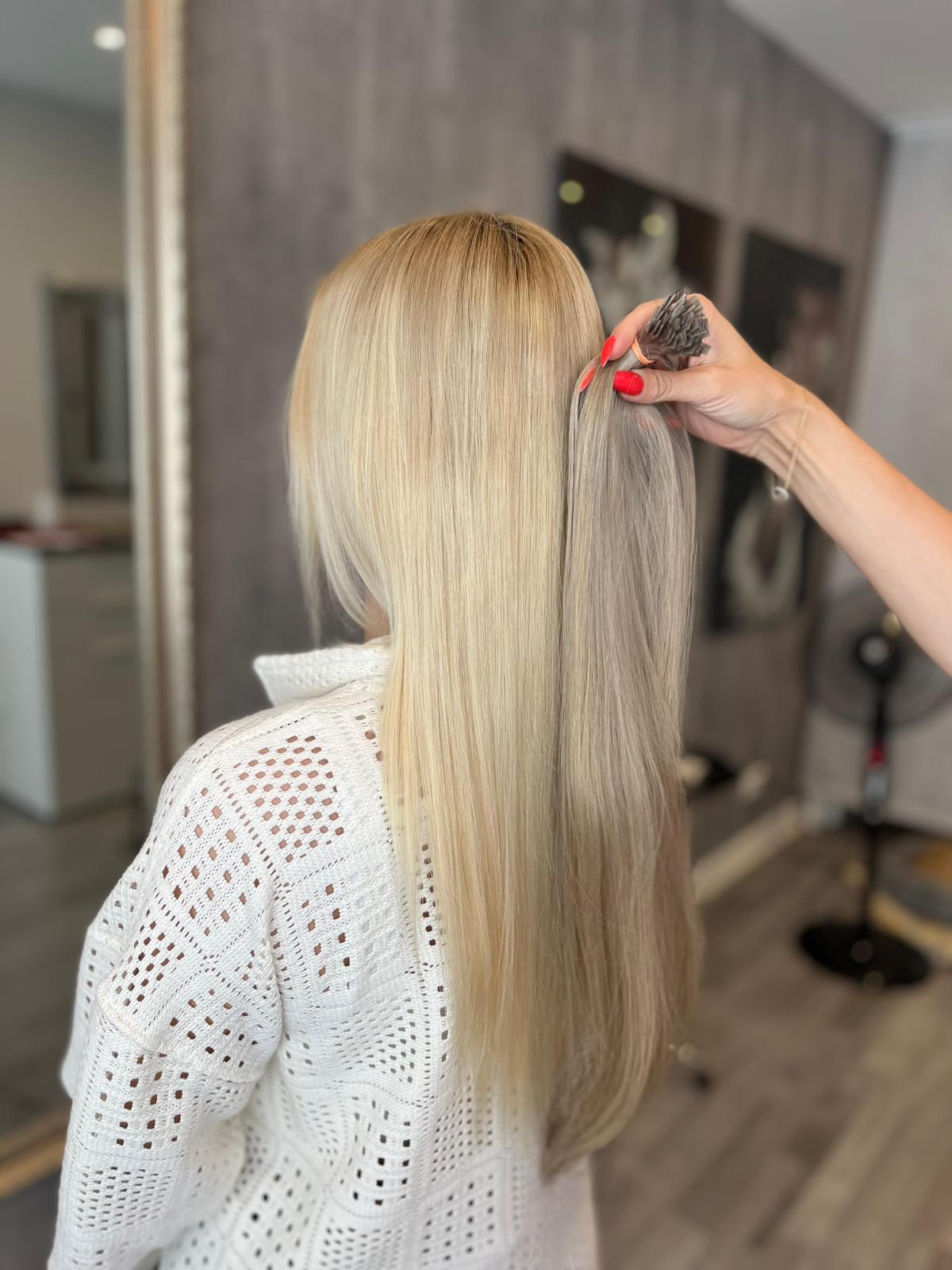
The time after the birth: When hair suddenly falls out
What was so wonderful during pregnancy can come as a shock after the birth. Around two to four months after giving birth, many women experience increased hair loss, which is medically referred to as postpartum hair loss or postpartum effluvium.
This hair loss is completely normal and nothing to worry about. It occurs because oestrogen levels drop rapidly after the birth. All the hair that stayed on your head for a long time during pregnancy now falls out in a relatively short space of time. This can feel dramatic, especially when showering or brushing, when suddenly a lot more hair gets caught in the brush.
Postpartum hair loss is temporary. In most cases, the situation normalises again within six to twelve months after the birth. Nevertheless, this phase can be a challenge for women with extensions.
Extensions Pregnancy: What to consider during the nine months
In principle, there is nothing to be said against wearing extensions or having them inserted during pregnancy. On the contrary: as the hair is often fuller and stronger, this can even be an ideal time for hair extensions. However, there are a few points to bear in mind.
Choose the right methodNot every lengthening method is equally suitable for pregnant women. Particularly gentle techniques should be favoured during pregnancy. Micro-bondings, nano-bondings or Tape extensions are good options as they put less strain on your own hair. Methods with strong traction on the hair root should be avoided.
Focus on convenience: As pregnancy progresses, many things become more difficult. Long sessions at the hairdresser can be exhausting. Choose a method that doesn't require hours of appointments and is also comfortable to maintain. Remember that you may not be able to move as easily and simple grooming procedures will become important.
Avoid chemical treatmentsDuring pregnancy, the body reacts more sensitively to chemical substances. Even if there are no clear studies that prove that extension glue or similar products harm the baby, caution is advised. Make sure you use high-quality products that are as natural as possible and that the room is well ventilated during application.
Take physical changes into accountSome women develop a more sensitive scalp during pregnancy or are prone to swelling. What was previously problem-free can suddenly become uncomfortable. Listen to your body and don't hesitate to have extensions removed earlier if they no longer feel good.
After the birth: Extensions for hair loss
The postpartum period is the most critical phase for many women when it comes to extensions. Postpartum hair loss poses a particular challenge, especially if extensions are already in the hair.
Stress for weakened hairIf your own hair is already weakened by hormonal hair loss, any additional weight can be problematic. Extensions exert a certain weight on the hair roots, no matter how gently they are fitted. If hair is already falling out, this can lead to increased loss.
Extensions can come looseBecause more hair falls out than normal during postpartum hair loss, extensions can also come loose or grow out more quickly. The Bondings or attachment points lose their hold if the hair to which they are attached falls out.
Taking a break can be usefulMany experts recommend not using extensions during the phase of most severe hair loss. This gives your own hair the chance to recover and prevents additional stress for the hair roots.
Caring for hair extensions during and after pregnancy
Proper care is particularly important during this sensitive time. Here are some tried and tested tips:
Gentle cleaningUse mild, sulphate-, paraben- and silicone-free shampoos that are gentle on both your own hair and the extensions. Overly aggressive washing can increase hair loss and weaken the bonds.
Moisture is importantHormones can make hair drier. Moisturising conditioners and hair masks help to keep extensions and your own hair supple. Make sure you avoid the bonding areas.
Careful brushingBrush very gently, especially during the hair loss phase. Use a special Extension brush and work your way from the tips to the roots. Never tear at matted areas.
Don't forget your dietWhat you eat has a direct effect on your hair health. Make sure you eat a balanced diet with sufficient iron, zinc, biotin and protein. A good supply of nutrients is particularly important when breastfeeding.
Use heat protectionIf you use styling appliances, always protect your hair with a heat protection spray. Weakened hair is more susceptible to heat damage.
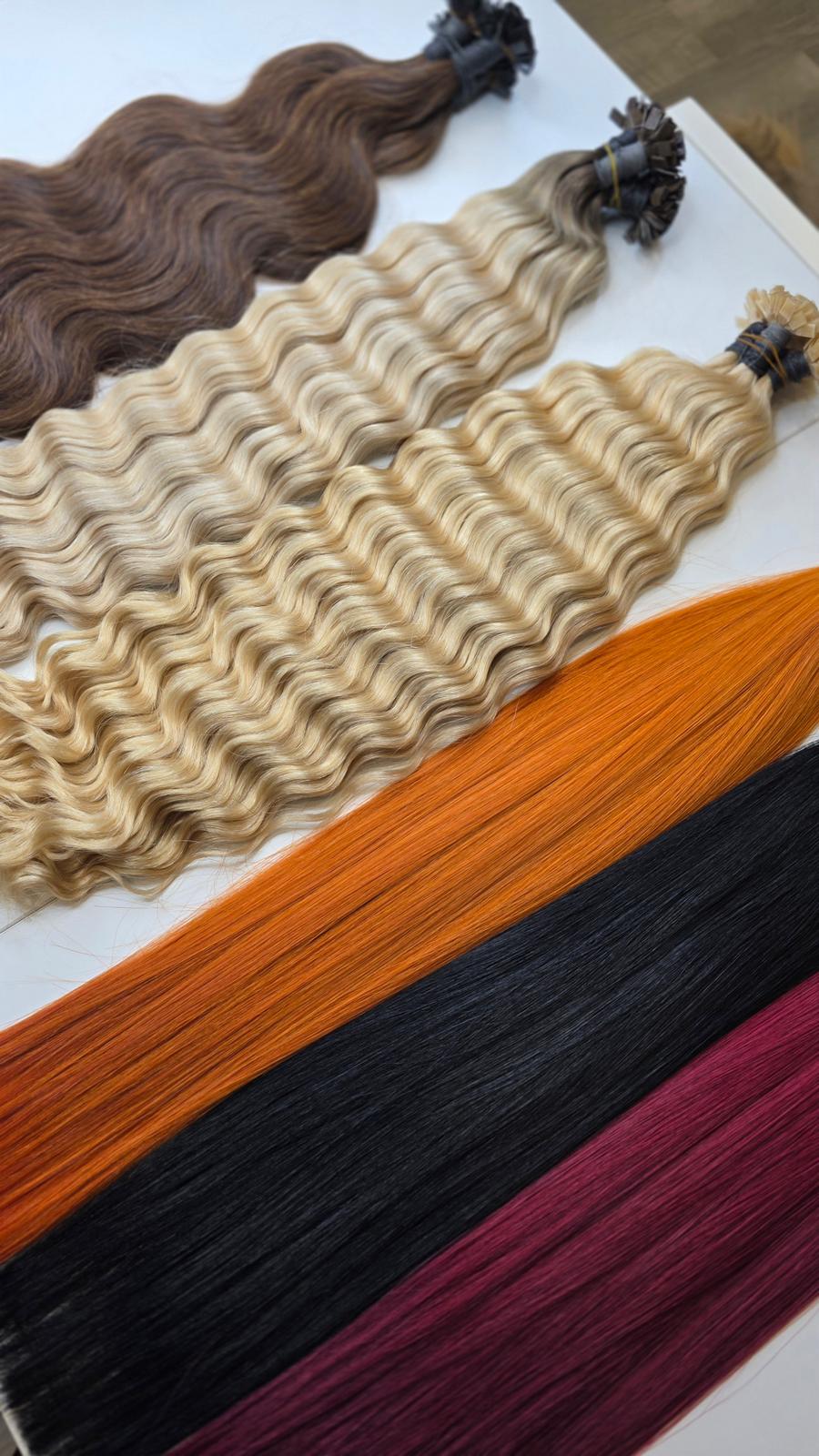
When to do without extensions
There are situations in which it is better to do without extensions or to remove them:
- If you notice increased hair loss during pregnancy
- For very thin or severely damaged natural hair
- If the scalp is irritated or inflamed
- In the acute phase of postpartum hair loss with massive hair loss
- If extensions feel uncomfortable or cause pain
In these cases, it is advisable to give your own hair a break and possibly talk to your hairdresser about alternatives.
The role of professional counselling
Professional advice from experienced extension specialists is particularly valuable during and after pregnancy. They can assess the current condition of your hair, recommend the most suitable method and inform you of realistic expectations.
A good salon will be honest with you and, if in doubt, advise you not to have extensions fitted if your hair is not in the right condition. This honesty pays off in the long term, as it protects your own hair from damage.
Arrange regular check-ups, especially in the postnatal period. This way, any problems can be recognised and rectified at an early stage. Many studios also offer special care treatments that support the hair during this sensitive phase.
Alternative solutions for the transition period
If extensions are not possible or not advisable during or after pregnancy, there are alternatives:
Clip-in extensionsThese can be inserted and removed as required without permanently damaging your own hair. They are perfect for special occasions or if you only occasionally want more volume.
Volume powder and styling tricks: With the right products and techniques, even thinning hair can be made to look fuller. Dry shampoo, volumising powder and the right blow-drying technique can work wonders.
Hair thickening instead of lengtheningIf it is mainly about volume, a thickening with a few strands is often sufficient instead of a complete lengthening.
Your path to beautiful hair at every stage of life
Pregnancy and the time after are special phases that deserve special attention. Extensions can also be a wonderful way to feel beautiful and self-confident during this time, provided they are chosen carefully and applied professionally.
At Haartick-Extensions, we understand the special needs of expectant and new mothers. We provide honest and comprehensive advice on all aspects of extensions during pregnancy and work with you to find the best solution for your individual situation.
Arrange a personal consultation now and find out more →
Your hair deserves the best care at every stage of life, and we are happy to accompany you on this journey.
